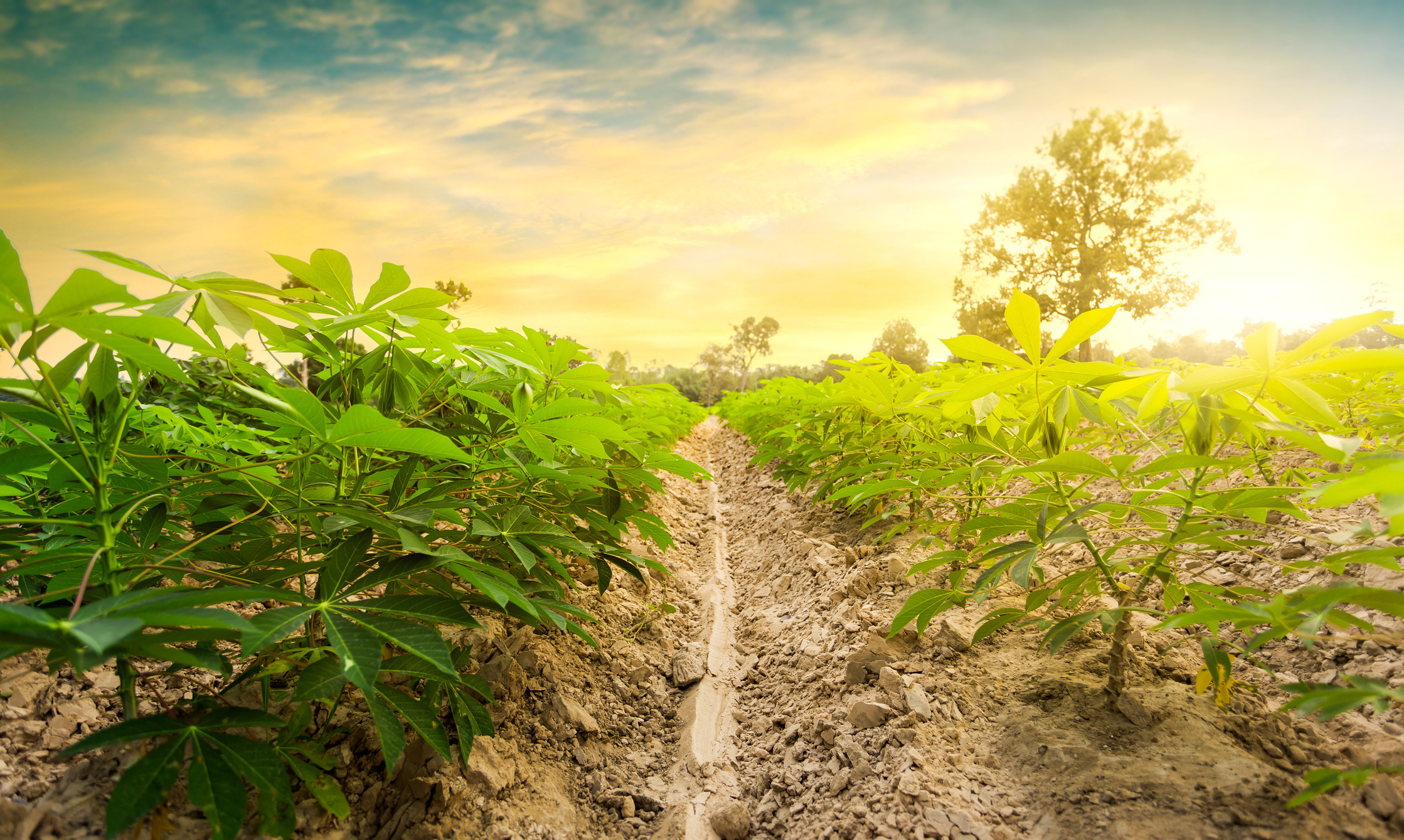Empowering smallholder farmers in South East Asia
7th June 2024
Interview with Thai Wah

Thai Wah has been successfully implementing the Farm Sustainability Assessment (FSA) with smallholder tapioca farmers across Southeast Asia (SEA). With 76 years of experience in plant-based ingredients solutions, food products, and biodegradable goods, the company is committed to ensuring that all stakeholders throughout the value chain, including the 50,000 SEA farmers they work with are impacted positively by the organisation’s growth.

We recently caught up with Somruedee Ridthaisong, Director Project & Farm Development, Pongsak Noi-am, Assistant Manager Farm Sourcing Operation and Natthakit Phatlamphu, Section Head Agronomist, to hear about how Thai Wah’s regional agronomy team is using the Farm Sustainability Assessment (FSA) to partner with smallholder tapioca farmers in Thailand, Cambodia, and Vietnam to tackle issues including a lack of water, crop disease, poor soil health, and community health and wellbeing.
Why did you feel the FSA was the best option for demonstrating the sustainability of your farmers, and how does the system support you in engaging with those growers?
At Thai Wah, we strongly believe that sustainable farming is something that can and must be scaled in SEA. Together with local authorities, we have a responsibility to communicate and conduct activities related to sustainable practices with farmers. The FSA suits us because it is a globally recognised benchmark for sustainable agriculture that is both efficient and effective in aligning the company and the smallholder farmers we work with behind a common goal. As a robust tool for assessing, measuring, and verifying on-farm sustainability, it offers step-by-step guidelines and a list of sustainable practices that should be followed.
We chose to initiate the implementation of FSA with a group of cassava growers in Preah Vihear province, Cambodia and later in Udon Thani province, Thailand. These groups of farmers have strong cooperation among themselves, and importantly, the intention to improve their agricultural practices and livelihoods. The FSA system and supporting guidelines helped us encourage farmers to partner with us by providing the necessary data so that together, we could identify gaps and co-develop continuous improvement plans.
What is unique about working with smallholders? How do Thai Wah and your farmers approach continuous improvement and ensure that momentum continues?
Across regions and communities, people have different knowledge, skills, and mindsets. For this reason, it is not possible for Thai Wah to transition to more sustainable farming practices by using a one-size-fits-all model with every community. Thus, before implementing any sustainability model in a community, we need to understand their culture, behaviour and needs. What is unique about the FSA is that it is flexible enough that it can be adapted to the local context, while maintaining its global relevance.
In SEA, it is helpful to collaborate with local authorities who engage closely with farmers in the various regions, providing them with support on a regular basis. We share the same goal as local authorities, which is to ensure and improve farmers’ livelihoods. Working together enables us to co-develop clearer one-year and three-year plans.
Communication and trust are key to continuous improvement. By demonstrating the positive environmental, social and economic impact of sustainable farming practices to smallholders through the practicality of implementing the FSA, we aim to earn their trust. This allows us to work together as partners, towards achieving common goals. With these learnings, we plan to implement the FSA in more farming communities across Thailand and Vietnam in 2024 and 2025.
How does your FSA verification and your ongoing work on sustainable agricultural practice create commercial value for Thai Wah and your farmers?
FSA verification empowers us and our farmers to ensure the right volume, quality, and timing of cassava supply. Having used the FSA as a tool to help farmers improve their practices, we see increased yields, better social conditions, and stronger economic results. Our farmers echo this positive sentiment and are keen to keep improving their farming practices as they already see the benefit for their households. At Thai Wah, we consider it a privilege to have the opportunity to be an inclusive business. Farmers are not only our suppliers, they are viewed as our valued customers who we serve, develop and grow, together with our business.
What advice would you have for companies considering implementing sustainability initiatives with smallholder farmers?
The FSA serves as a tool covering all sustainability aspects of agriculture. It benefits not only farmers and their families but the wider community. Adopting the FSA helps companies build trust with local authorities, farmers, and other stakeholders that share the common goal of improving the environment and farmer livelihoods. It is, of course, a journey, but the guidelines of the FSA are straightforward and easy to implement with proven impact.